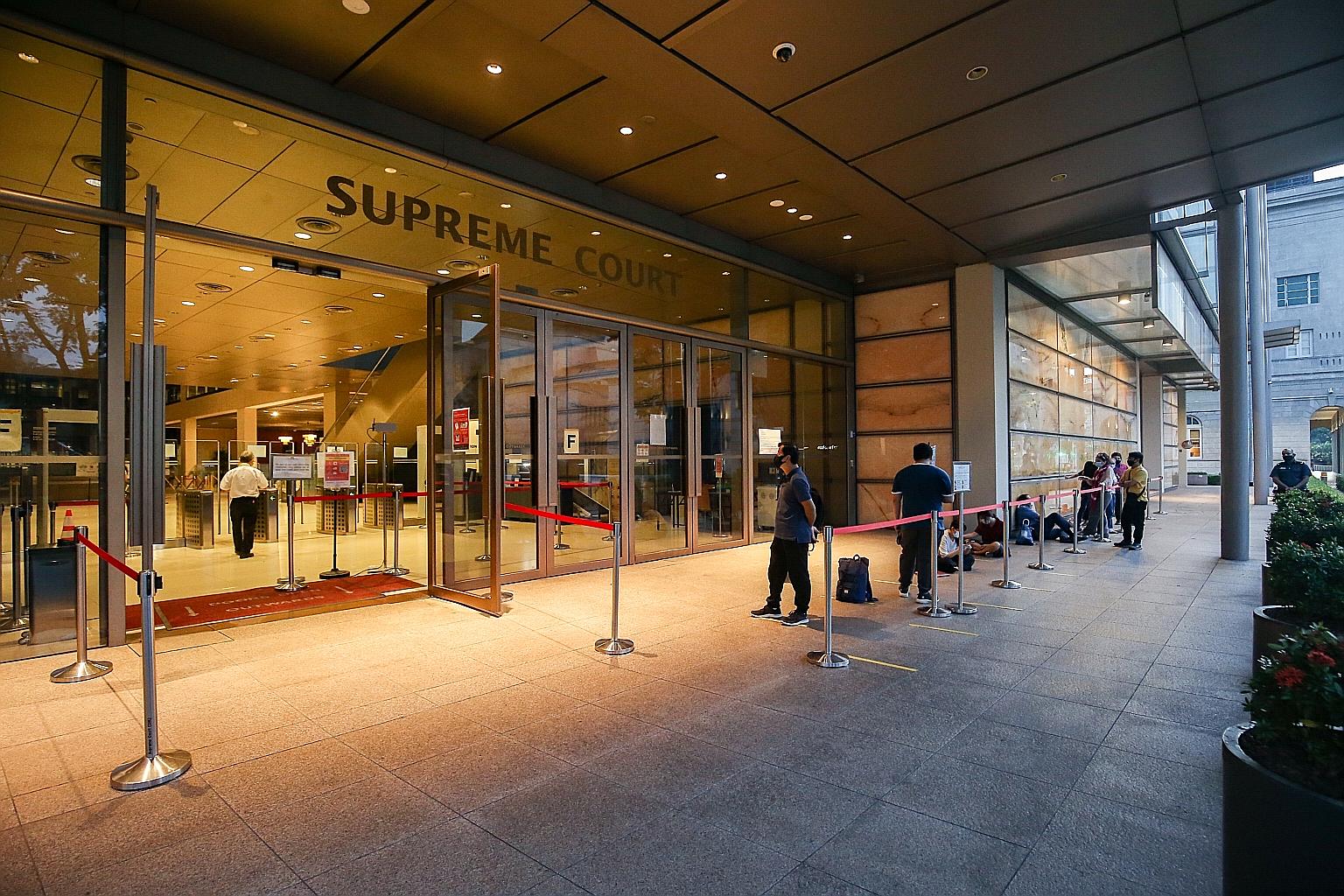High Court's new appeals division to start hearing cases from Jan 2
It is one of two divisions to come under High Court following revamp to boost efficiency
Sign up now: Get ST's newsletters delivered to your inbox

The new Appellate Division allows the Supreme Court to "better deploy judicial resources and manage the appeals caseload... while continuing to maintain high standards of access to justice and quality of justice".
PHOTO: LIANHE ZAOBAO
Follow topic:
A new appeals division being formed in the High Court, to handle some of the growing number of appeals making their way to the apex court, will start hearing cases from Jan 2.
The new Appellate Division, which will hear civil appeals, is one of two divisions that will come under the High Court following a restructuring aimed at improving the efficiency of the courts.
The other division is the General Division, which will continue to perform the High Court's current functions.
With this change, High Court cases heard by the General Division could go to the Appellate Division on appeal, a departure from the current arrangement that sees all appeals against High Court decisions going to the apex Court of Appeal.
The High Court and the Court of Appeal make up the Supreme Court, which announced details of the changes in a statement yesterday.
It said High Court Judges Belinda Ang, Woo Bih Li and Quentin Loh will be appointed Judges of the Appellate Division, with their terms starting from Jan 2. Justice Ang will be president of the division.
The structural reforms were given the nod in Parliament in November last year, with amendments made to the Constitution of the Republic of Singapore Act, the Supreme Court of Judicature Act and the Judges' Remuneration Act.
The Supreme Court said the Court of Appeal will continue to hear all criminal appeals, and prescribed categories of civil appeals.
These include appeals from constitutional law, administrative law and contempt of court cases, as well as those involving the Parliamentary Elections Act and the Presidential Elections Act.
Civil appeals not in the prescribed list will be heard by the new Appellate Division, which will typically sit in a panel of three judges.
Despite the prescribed categories, the Court of Appeal will have the power to transfer civil cases between itself and the Appellate Division in accordance with provisions under the law.
The Court of Appeal may also grant leave for appeal against the decisions of the Appellate Division, when the appeal raises a point of law of public importance.
The new Appellate Division allows the Supreme Court to "better deploy judicial resources and manage the appeals caseload... while continuing to maintain high standards of access to justice and quality of justice", the court said.
Meanwhile, the General Division, which includes the Singapore International Commercial Court and the Family Division of the High Court, will have all the jurisdiction and powers of the existing High Court.
This means it will hear the cases that now go to the High Court, including the appeals that emanate from lower court cases.
Second Minister for Law Edwin Tong, who tabled the amendments in Parliament, said in a Facebook post yesterday: "In the past five years, the number of cases received by the Court of Appeal has increased significantly - by more than 50 per cent, with cases getting more complex by virtue of the world we live in today."
He added: "To enable the Courts to better manage the appeals caseload and maintain its high standards of access to justice and quality of justice, the new Appellate Division will have its own judges, who will hear certain civil appeals that are currently heard by the Court of Appeal."

